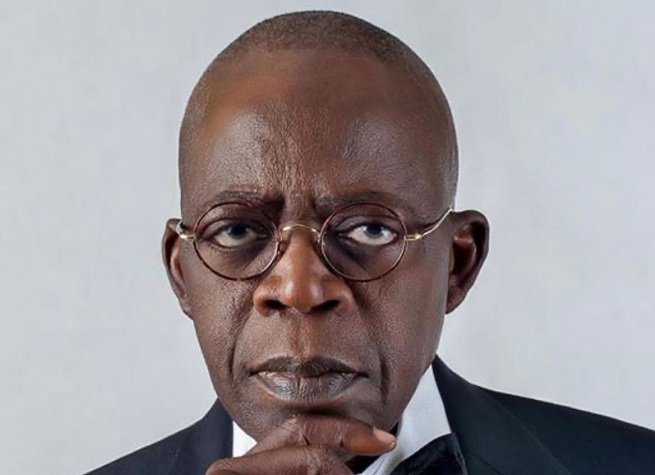Seventeen years ago, during a Presidential forum on education reform, it was asserted by one of the resource persons that “by 2020 Nigeria may have a significant population of highly skilled trained criminals if nothing is done today”.
This damning verdict stemmed out of the fact that out of twenty million pupils who were in primary schools, only six million (30%) would get to high schools, and out of one million yearly applicants for university education, only 150,000 (15%) gain admission. Out of these, about 100,000 graduate yearly, with less than 30,000 of them getting into regular employment. At these rates and lower rates from the past, our societies are increasingly been saturated with idle youths (globally, youth is pegged between 15-24 years and at the upper limit 35years) who are daily exposed to make believe, get rich quick, glorification of violent demeanor from videos and politics as the only viable career rather than a hobby. For politics remain a means to an end, a platform for contributing to a dignifying public service and not an end in itself.
In 2020, The National Bureau of Statistics (NBS) put unemployment rate at 33.3 percent and according to a report in BusinessDay Newspaper, The Nigerian Economic Summit Group (NESG) has projected the unemployment rate in Nigeria to rise to 37 percent in 2023, four points ahead of NBS’s 2020 data. We are in 2023 already and as matters stand today, the number of unemployed, underemployed and unemployable youths keep soaring, pointing as it is to doomsday.
The major question for the incoming government of Asiwaju Ahmed Bola Tinubu will be the youth question. How can we get this army of Nigerian critical stakeholders productive? The ‘significant population of highly skilled trained criminals’ prophecy which has been rearing its ugly heads in many areas of our nation must be aborted with non rhetorical resolve this time.

To start with, Asiwaju must take a look at China over thirty years ago under the leadership of President Deng when China was confronted with an army of frustrated unemployed youths. Deng, after a thorough analysis of global trends particularly in tradable skills decided to focus on University education with emphasis on science and Information technology (IT). Today China produces over 50% motorcycles and over 30% of personal computers globally. The country churns out 350,000 engineering and computer specialists annually, registering three times more patent applications than the US; just recently their another batch of Chinese astronauts returned to earth from the moon and not too long ago too, Nigeria obtained over a billion dollar loan from China for infrastructural development.
In the 1960s Singapore and Nigeria used to be at par, with each having a $300 per capital income. But today, the gap in standard of living between the two countries is so wide. Singaporean Prime Minister Lee Hsien Loong once declared, ‘there will be no barrier to knowledge, information and lifelong learning. Our Universities maintain open access, but rigorous academic standard, our Polytechnics impart professional expertise through a practice based curriculum, and our institute of technical education equips students with hands-on technical skills and critical thinking habits. We are also investing in upgrading the skills of the workforce, keeping older workers current and employable. On an intelligent Island, every pair of hands has to be a pair of thinking hands. None should be hewers of wood or drawers of waters’.
Nigeria was far better than Costa Rica in the 60s when our youths were productively at optimum, but today the country has successfully transited from a banana republic to a regional IT power hub just over a period of ten consistent years of planning and execution. Arias, a Nobel Laureate and former President of Costa Rica declared thus, ‘in 1998, while I was President, our government installed computers in elementary schools. Since then the program has reached over 1.5 million students, more than half of whom live in underprivileged areas. Exactly ten years after the first computer was installed, Intel, opened a $500 million micro chip plant in San Jose. Among the attraction Intel cited was the availability of an educated workforce. Today, Costa Rica’s 12% GDP comes from software sales and is the third most competitive outsourcing destination in the world after China and India vying for a piece of the global IT outsourcing market worth more than $50 billion.
Nigeria have the requisite market potentialities and is not a greenhorn in global development trends but what we have been lacking and which the next administration must tackle is dearth of infrastructure and enabling environment for businesses particularly the start ups to thrive. Luckily Asiwaju in his manifesto has promised easy access to credit, business mentorship, NYSC Reform, and business Incubation centers among other things as parts of plans to reduce unemployment from the current high to 11.9 million by 2026.

The ‘#EndSARS’ protest of 2020 and the recent waves of obedient movement across Nigeria are clear pointers to how disruptive to established systems the youths of any nation can be whenever they become formidable. The time is very ripe for the incoming administration to take advantage of this pool of resource to cash out heavily and produce more Dozy Mmobuosi who is about completing a 90 million pound takeover of Sheffield United Football Club in England or Shola Akinlade the co-founder of Pay stack who already bought 55% of a Danish football club Arhus Fremad. There are many of such great Nigerian youths shattering glass ceiling in various careers especially abroad. However the number is just too few; a very tiny drop in a very vast ocean. May the hope of millions of the Nigerian youths be renewed and that renewed hope rest squarely on the Presidency of Asiwaju Ahmed Bola Tinubu.
– Ronke Bello, PhD, a Policy Analyst, Communication Expert and member of the APC PCC Public Affairs, writes from Abuja




